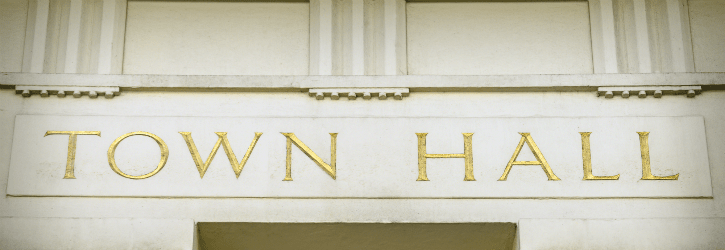Welcome To The Data Leak Lawyers Blog
We focus on the latest news surrounding data breaches, leaks and hacks plus daily internet security articles.
We focus on the latest news surrounding data breaches, leaks and hacks plus daily internet security articles.

The cyber threats to local governments has been present for a number of years, but the current coronavirus crisis has also presented a new opportunity for cybercriminals. As the external threat posed by hackers shows no sign of abetting, it is up to the councils themselves to take action to prevent local government cyberattacks.
With a number of extremely costly data breaches hitting local councils in 2020, local government organisations have been alerted to the risk posed by deficient cybersecurity. Unfortunately, the victims of council data breaches were already all too aware of the consequences of data exposure. We have supported victims in relation to council data breaches many times, and we believe that there is still much to be done to improve local government cybersecurity.
If you have been affected by a data breach of any kind, you may be able to claim compensation for the harm caused. Contact us today to receive free, no-obligation advice on your potential claim.

In May last year, the news of the EasyJet cyberattack hit the headlines when the airline publicly admitted that the data of nine million customers had been hacked. Although the attack was first identified as early as January, some customers did not hear about their involvement in the breach until May.
Now, just over a year since the news of the incident broke, we continue to take on claims for those affected by the cyberattack. If easyJet is found to responsible for the exposure of their customers’ data, the company could be liable to pay out thousands of pounds in compensation to the victims.
As a leading firm of data breach and consumer actions lawyers, Your Lawyers- The Data Leak Lawyers – is leading a number of high-profile group actions against large companies, including travel companies like Marriott and British Airways. We have been representing clients for privacy matters since 2014, so we have the expertise needed to bring your data breach claim to fruition. Anyone affected by the easyJet cyberattack can contact us today to start their claim.

Hospitals and doctors’ surgeries host visits from large numbers of patients every day, and are treated as places of safety and refuge for those with health issues. Unfortunately, despite the fact that patient-doctor confidentiality is a principle at the heart of the medical profession, some hospitals and healthcare sector organisations are letting down the patients who trust them by failing to protect private data.
We constantly hear how much strain the NHS is under, but the lack of resources and staff is not often seen from the perspective of cybersecurity and data protection. In the wake of the coronavirus outbreak, NHS staff were put under even greater pressure to meet the demands of controlling the virus and, in some cases, data protection has been further neglected.
It is essential that healthcare organisations see data protection as a high priority, or they risk exposing patient data, as has already been the case in many previous healthcare data breaches. Whether it is a case of government funding or internal organisational issues, all healthcare organisations must step up and meet the challenge of the ongoing, and increasing, cybersecurity risks that they face.

In May last year, we began to be contacted by victims in relation to the 118 118 Money data breach. Affected customers received a data breach notification letter telling them that their data had been subjected to unauthorised access. We judged that victims may have a case for a data breach compensation claim, and we are still taking claims on if you wish to seek justice for the exposure of your private data.
As leading, specialist data breach compensation lawyers, we believe that everyone should be able to access justice in relation to privacy matters. By giving a voice to data breach victims, we hope to bring them the compensation they deserve, and we are also determined to make companies face up to their data protection responsibilities.

In the digital era, private information is stored not only in filing cabinets and on computer hard drives, but also on cloud storage systems. Cloud computing is a key component of many businesses’ digital operations, meaning that many of the companies to which you have disclosed your personal information may choose to store it in a cloud database. When correctly operated, cloud storage systems can be nice and secure but, if not, cloud data leaks can occur, and your data may be at risk of becoming accessible online to unauthorised third parties.
Businesses must take care to implement appropriate security provisions when storing private data in the cloud. Unfortunately, many fail in their data protection responsibilities, leaving your information vulnerable to misuse.
If you have fallen victim to a data breach, you may be able to claim compensation for any harm caused to you. We strongly believe that your data security should never be compromised by a third party, which is why we help victims of data breaches to achieve the justice that they deserve.

Personal data is an incredibly valuable resource for cybercriminals who are developing increasingly sophisticated ways of stealing personal information and using it to commit fraud. Although many people may understand or have at least heard of identity theft, synthetic identity theft is a less familiar concept for many people. It is a risk that everyone should be aware of in our view, as it is one of the more sophisticated and evasive methods in the current cybercrime landscape.
Your Lawyers – The Data Leak Lawyers – as leading specialists in data protection claims, are always looking to raise awareness about data security issues and the potential cybercrime that can result from data breaches. If consumers remain unconscious of the risks and how they can happen, people may then be unaware of the right to make a claim if something does happen. To hold companies to account, we can bring compensation claims against them on behalf of data breach victims.
If you think you have been affected by a breach of data protection law, you can contact us for advice on your potential claim.

Whenever an employee joins a company, they are usually required to disclose a variety of personal details for the purposes of workplace records. In many cases, this data is taken for the employee’s safety, with details such as family contact numbers and health condition information allowing employers to act appropriately in the event of an emergency. However, holding such sensitive information can pose many risks to employees if it becomes exposed. In fact, if they have poor data protection measures, companies risk making their employees vulnerable to workplace discrimination from a data breach if something happens.
Employers have a legal obligation to protect the information of their employees, so they can be held liable when a data breach does occur. We aim to bring victims of data breaches the justice they deserve, so contact us for advice if your personal information has been exposed in your place of work.

With so many NHS employees and resources devoted to suppressing the spread of Covid-19, data security concerns have inadvertently been pushed to one side by healthcare organisations in 2020 in some cases.
It is believed that cybercriminals took advantage of this gap in data protection by launching more attacks on hospitals and other public health organisations. Meanwhile, human error has continued to be a contributing factor, causing several notable healthcare breaches in 2020 also.
The coronavirus pandemic has undoubtedly laid bare the security risks faced by healthcare organisations. Though cyberattack attempts have likely increased during the Covid-19 crisis, healthcare organisations have always been prime targets for cybercriminals, given the sensitivity of the information they hold. As such, the same risks will confront them in the years to come if changes are not made.
We have witnessed first-hand the damage that can be caused by data breaches in our support for the victims. Anyone who has suffered the effects of healthcare data breaches, or any other kind of data breach, may be able to claim compensation for the harm caused.

Data snooping attacks can represent one of the many methods that cybercriminals use to steal private information. Snooping methods are commonly used to steal data from insecure networks and other systems. Sometimes, data snooping is even used by well-known companies seeking to extract information relating to their users.
In the digital age, personal data is a valuable commodity, such that there is a large underground network of hackers and fraudsters who aggregate data for malicious purposes. With the risks growing and growing, third-party organisations must aim to safeguard the information that is under their protection.
In fact, all UK data controllers are legally bound to comply with the rules of the GDPR, meaning that they can be held liable when a data breach occurs. If you have been affected by a data breach, you may be entitled to claim compensation. Any victims can contact us for free, no-obligation advice about their potential claims.

Councils are often in possession of extensive personal information pertaining to their employees and their residents. Often, councils keep sensitive information belonging to residents in receipt of benefit payments, or to those who have made payments to them, whether this is for a parking fine or for council tax. Council payment data breaches can arise when any information relating to payments to or from residents is exposed.
The wealth of information available at councils can make them prime targets for hackers, but it also means that any human error data breaches caused by employees can have severe implications. For the victims, data exposure can provoke an emotional and financial impact, which is why we help those affected to claim compensation for the harm caused to them.
Each and every third-party data controller has a duty to protect the data entrusted to their care, and they can be held accountable under the law when this duty is neglected. Your Lawyers, as leading data protection lawyers, know what it takes to hold organisations to justice.
Fill out our quick call back form below and we'll contact you when you're ready to talk to us.